When a heart attack took Gert Boyle’s husband away from her in 1970, she found herself at the helm of a struggling outerwear manufacturer.
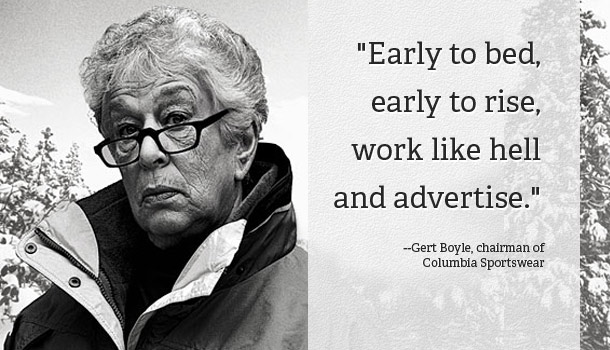 The forty-six-year-old housewife was faced with the challenge of turning around her small company of forty employees and less than $800K in annual revenue.
The forty-six-year-old housewife was faced with the challenge of turning around her small company of forty employees and less than $800K in annual revenue.
And she succeeded brilliantly!
Boyle and her son Tim turned Columbia Sportswear into a leading outdoors and sportswear brand in the U.S., with more than 2000 employees and over a billion in annual sales.
And it wasn’t until Nov. 3rd of this year that Columbia Sportswear lost its pioneering chairwoman Gert Boyle at the tender age of 95.
So, it’s worth studying the ad campaign that grew Columbia from a small-time manufacturer into a world- class brand while making Ma Boyle famous.
Reason-why vs. Character and Story-Based Advertising
The inflection point for Columbia’s success story was a change in advertising strategy.
Prior to the change, Columbia’s ads emphasized that their sportswear was “engineered” to be better.
 The sample ad is a text-book example of a rational, reason-why approach to advertising. Features and Benefits galore.
The sample ad is a text-book example of a rational, reason-why approach to advertising. Features and Benefits galore.
It’s an utterly logical approach that utterly failed to persuade consumers.
Enter Borders Perrin & Norrander created a brand new marketing campaign focusing on the human and values-driven element.
As legend has it, the ad creatives were struck by the image of oldest Son, Tim, sitting with his very non-nonsense looking mom for their meetings.
They decided to build their campaigns around Gert Boyle, portraying her as “one tough mother” who demanded that the company live up to her values.
The Power of Drama
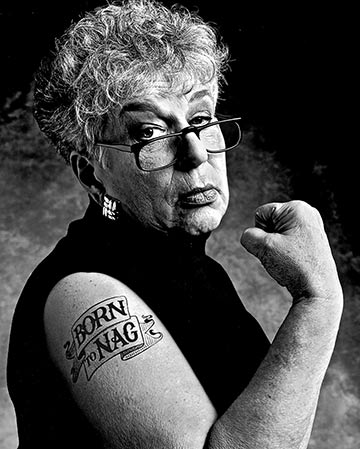 The genius of this new campaign, however, wasn’t just the character of Ma Boyle as “One tough mother.”
The genius of this new campaign, however, wasn’t just the character of Ma Boyle as “One tough mother.”
The genius was the decision to dramatize Gert’s toughness by playing up the mother-son relationship that existed between Columbia’s CEO and its President — i.e., Gert and Tim.
You can’t just show someone being tough (or kind or wise, etc). To dramatize these words, you have to turn them into verbs, and transitive verbs at that.
Which means you have to show the person being kind to someone. Or tough on someone.
And to make tough a virtue, you have to show the person being tough on behalf of someone else, in this case Gert was tough on her son (and his products) on behalf of the customer.
Here’s what that new campaign looked like:
And here’s how it looked in print:
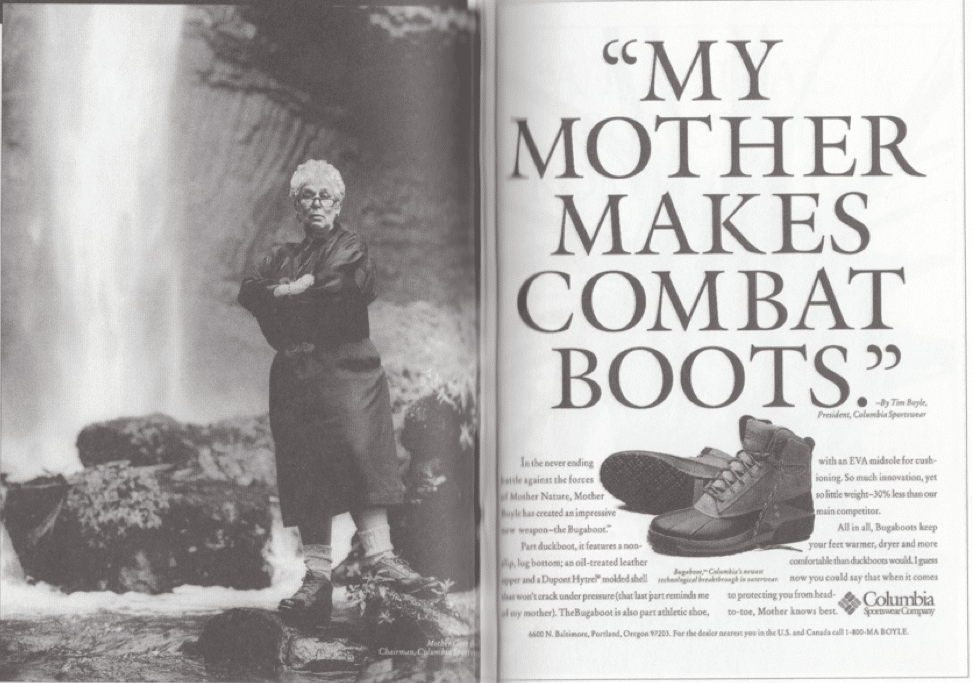
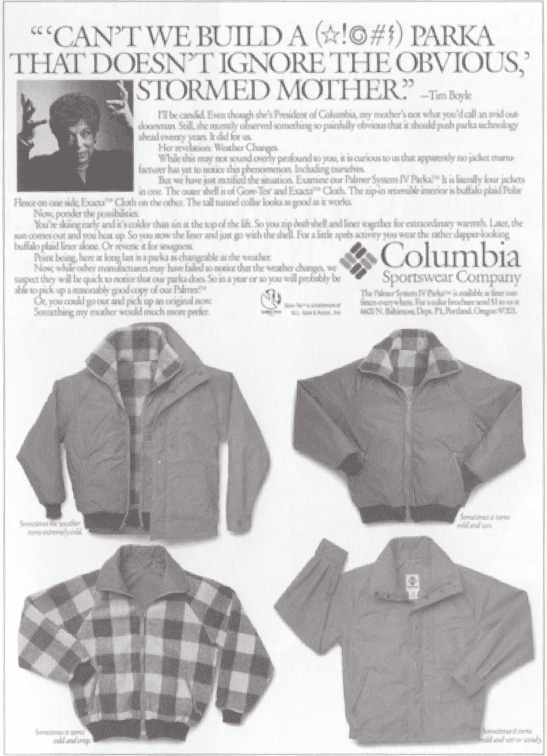
Saying “We Care” Doesn’t Work. Making People Believe That You Care Works Like Mad
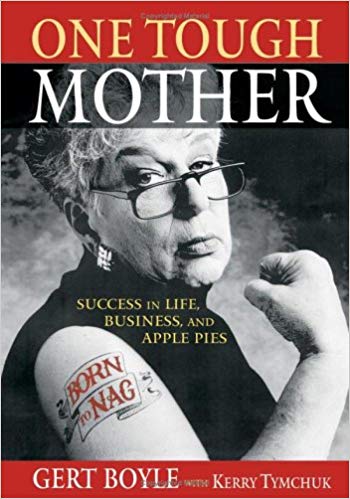 People saw those ads and believed.
People saw those ads and believed.
They believed that Gert really cared, fervently (and perhaps violently, if necessary) about the products her company manufactured.
They believed her interest in building clothing that protected the wearer went way deeper than a rational business desires to “engineer” a better product.
As Ma Boyle puts it in her book:
“The impact of the ads was almost instantaneous. Sales quickly increased and I was surprised when strangers came up to me on the street and asked if I was the ‘tough mother.’
Better yet, the image created by the advertisements took hold. Instead of seeing us as just another outerwear company, our customers thought of us as the company where the cranky and crotchety old broad made sure that they were getting a good product at a fair price.
The bottom line was that what we were really expressing was that we were human… People relate to us because they believe there is a person at Columbia who really cares. And the best thing about our ads is that they are true. I do care.”
So here’s to you, Ma Boyle! You are already missed.
May your lessons stay with us while inspiring all those seeking to grow their small businesses big while staying true to their inner values.
Want to craft your own owner-as-spokesperson-who-cares campaign? I’d be thrilled to help you do just that.
- Getting a Foot in the Door — Of Perception - November 27, 2025
- What Digital Superstars Know About Offline Advertising - November 17, 2025
- Unmistakable: A Tale of Two Boots and Branding Done Right - November 8, 2025
